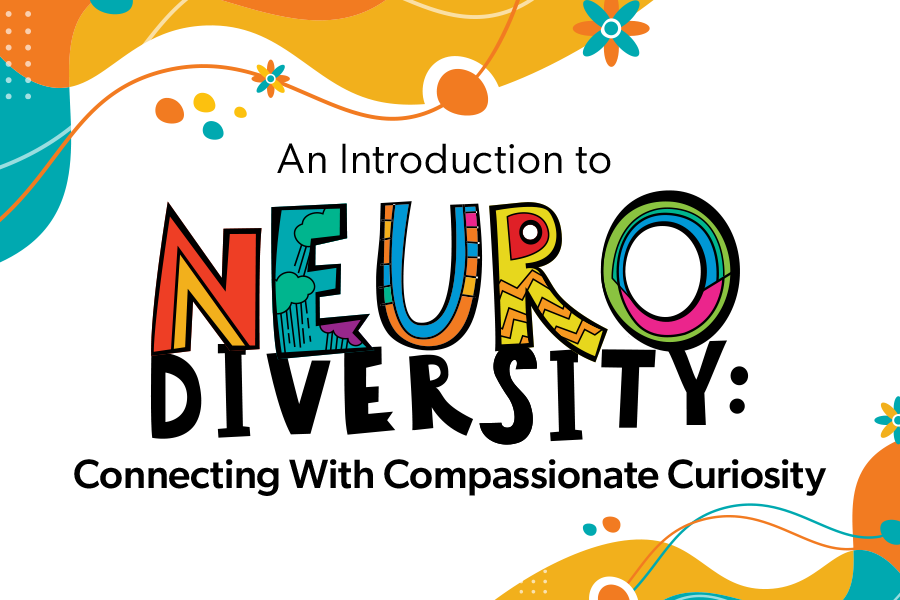Everyone’s brains work in different ways. This is also known as neurodiversity. Due to our biology, nature, nurture and many other factors, no two people’s minds work exactly alike!
To understand neurodiversity, we need to start with some important verbiage. The way we concentrate, remember and process information, speak and understand falls under the umbrella term “neurocognitive function.”
“Neurotypical” is a word that generally means normal neurocognitive functioning, while “neurodivergent” means different neurocognitive functioning. Neurodivergence is an umbrella term that covers disabilities like autism, ADHD, dyslexia and mental disorders, to name just a few. You can find more term definitions at the conclusion of this article.
Our differences are natural and not something that should be looked down upon! It’s important that we understand these differences and work to increase accessibility for everyone. When it comes to real estate and homeownership, this means it’s important to know that your approach to a transaction may need to adapt when working with a neurodivergent client. Applying a few intentional tactics can help you be inclusive in your day-to-day and increase the quality of communication for all your clients.
So, how can we lead with acceptance while working with a neurodivergent client? Dr. Abigail Cruz, PhD, Staff Therapist and Diversity, Equity and Inclusion (DEI) Initiatives Coordinator at Carnegie Mellon University, shared her tips during the 360° Summit: Leading With Diversity, Equity & Inclusion.
Use Identity First Language
The words we use are important, and they mean something. Neurodivergence is part of a person’s identity, so it’s important that we emphasize that by using identity-first language, especially in autistic
communities. Examples of identity-first language include referring to someone as autistic, an ADHDer or AuDHD. However, some folks may use person-first language which has been used to emphasize one’s humanity and to challenge stigma associated with disabilities. Examples of person-first language include referring to a person with autism or a person with a disability. While many neurodivergent folks advocate for identity-first language, it’s important to use whichever the person identifies with and to ask if you’re not sure how to refer to them.
As disability is a protected class in the country, Illinois, Cook County and Chicago, you cannot ask someone about their specific diagnosis or deny them services because they are disabled.
So, if you can’t ask someone about their diagnosis, how can you approach the topic? We’ll revisit that shortly.
Be Direct & Detailed When Communicating
A social script is often defined as what is culturally or socially accepted in a particular situation. It relies on an unspoken call and response that is silently and mutually understood.
For example, when a neurotypical individual is asked a simple question like, “How are you,” they typically respond using a socially scripted answer of “good,” and then ask how the other person is. For a neurodivergent individual, this question may be taken more literally. They may end up telling you how their afternoon isn’t going well and proceed to explain everything that’s happened in their entire day. Often in casual conversation, we’re not saying what we actually mean and are instead using social scripts.
This is important to acknowledge and accommodate for because, to best serve people who are neurodivergent, we may need to take accidental indirect language into consideration. If you tell someone, “I’m going to get a coffee,” it’s typically implied that you’re also asking if they’d like a cup. Neurodivergent individuals may not grasp that implication, so it’s important to express exactly what you mean.
When it comes to real estate transactions, that could mean giving your client specific deadlines regarding when you need something signed or exact timeframes of when you’re going to give someone a call. Direct communication is key in these scenarios and as much as you can explain, the more helpful you will be.
This communication practice, while great for neurodivergent individuals, is beneficial for working with all clients! You can mitigate misunderstanding, prevent assumptions and showcase your professionalism.
Ask About Sensory Needs
When you imagine a homey place, a specific scent or look may be the first things that come to mind.
However, for a neurodivergent person, strong scents or bright lights may be overstimulating. Take the time to approach your client with curiosity and ask what they prefer when it comes to sensory items like fragrances and brightness to create a comfortable environment, as everyone will have different preferences.
Additionally, one characteristic of neurodivergence, stimming, is using repetitive behaviors or sounds for self-regulation. This may look like rocking back and forth or repeating words or phrases. While some may mask, suppress or mimic behaviors to appear normal, others may not. Allowing your clients to show up authentically, move or stand as needed, and providing fidget toys are all ways of increasing accessibility and inclusivity.
A great way to approach a conversation around topics like this is to add the following question while onboarding all your clients: “Are there any accessibility needs that would make this process easier for you?”
Be Curious
If you don’t have a full understanding of neurodivergence or the correct vocabulary to speak about it, that’s okay! The best way we can approach a transaction with someone who is neurodivergent is by caring.
Simply telling your client that you’re open to learning more and acknowledging that you might not get it right the first time will go a long way to show your compassionate curiosity. Asking to understand instead of labeling will show that you care and appreciate the other person.
While this article spotlights neurodiversity, incorporating these skills provides an inclusive, baseline foundation when serving all your clients.
Additional Information
Interested in learning more? Check out the following resources:
Autistic Self Advocacy Network
The Autistic Self Advocacy Network is an American 501 nonprofit advocacy organization run by and for individuals on the autism spectrum. ASAN advocates for the inclusion of autistic people in decisions that affect them
Neurodiversity Network
The Neurodiversity Network is a website of resources for neurodivergent job seekers and students, employers and universities and the community who aim to consolidate neurodiversity resources into one place.
Neuroqueer & The Writings of Dr. Nick Walker
Dr. Nick Walker is an author, educator, queer futurist and transpersonal somatic psychologist who is neurodivergent. The Properties of Light & Resources from Rachel Boggan Rachel (they/she) is a licensed social worker, neuro-affirming diagnostic evaluation provider, clinical supervisor, and consultant.
Neurodiversity Dictionary
While this is not a full list of neurodiversity terms, these will help provide additional knowledge on neurodiversity and round out your vocabulary on the topic.
MASKING: A behavior or coping mechanism where someone suppresses or mimics behaviors to appear normal, even if it contradicts their true feelings or experiences.
NEURODIVERSITY: The diversity of human minds.
NEUROTYPICAL: A style of neurocognitive functioning that is considered “normal”
NEURODIVERGENT: A style of neurocognitive functioning that diverges from what is considered “normal.”
STIMMING: Repetitive behavior or sounds used for self-regulation.
Questions that Show Compassion for Your Clients
Work these questions into your conversations with all your clients to ensure you’re addressing their needs.
- Are there any accessibility needs that are helpful for me to know about?
- Are there any accessibility needs that would make the homebuying or selling process easier for you?
- Am I explaining this clearly?
- Can I help by explaining something differently?
- Is what I’m saying making sense?








